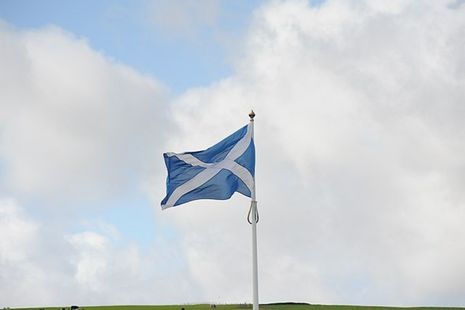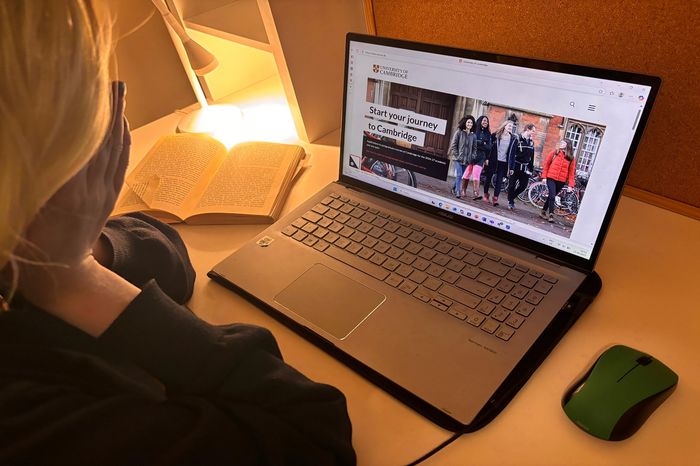Why are there so few Scots at Cambridge?
Daisy Stewart Henderson speaks to Scottish students about the cultural and institutional difficulties faced by Scottish Cambridge applicants

Arriving in Cambridge for the first time, I naively assumed that having come from Scotland wouldn’t be relevant. But when faced with the endlessly repetitive Freshers’ Week question – “So, where are you from?” – my Scottishness was suddenly more pertinent than it had ever been in Scotland. And after a certain number of explanations that yes, our exams are different, yes, we don’t have to pay tuition fees in Scotland, yes, it is a really long drive, I started to ponder another common question: ‘Why are there so few Scots at Cambridge’?
Last year, only 51 Scots were admitted to Cambridge, in contrast to 839 from Greater London. That Scotland’s poor admissions statistics cannot solely be pinned to a lack of University support is evidenced by the numerous initiatives in place to support Scottish applicants. The new Saint Catharine’s Finlay Family Bursary, for example, offers to fund the entire undergraduate degree of a low-income Scottish applicant, covering both tuition fees and living expenses. Homerton and Pembroke have regional responsibility for Scotland as part of the university’s area links scheme, organising Scotland-specific outreach.
Why is this support not manifesting itself through more Scottish students at Cambridge?
The support for Scottish applicants isn’t restricted to university-run programmes. CAMScot is an initiative which pairs Cambridge students and alumni with Scottish school pupils to offer mentorship for prospective applicants. Founded by Philip Riddle, who “went from Dunfermline High School to Trinity Hall in 1970 to read History and [has] never looked back,” the project now boasts over 150 registered volunteers, ranging from current undergraduates to septuagenarian alumni. Now in its fourth year, CAMScot has helped 220 pupils from 72 different schools in Scotland apply to Cambridge.
Why is this support not manifesting itself through more Scottish students at Cambridge? PhD student Jack Liddall, the outgoing president of Cambridge’s Scottish Society, stresses that, at Cambridge, you are “more than hard pressed to find a fellow Scot, and it is an even rarer occasion to stumble across a state school-educated Scot.” While these low numbers are often dismissed as an inevitable consequence of the lack of tuition fees in Scotland, speaking to Scots at Cambridge reveals that less overt cultural factors seem to be a key cause of Scottish underrepresentation.
Many students described the lack of knowledge about Oxbridge in Scottish schools, paired with the difficulties surrounding Scotland’s equivalent of A-Levels, Advanced Highers, as the most significant challenges facing Scottish applicants. The admissions requirement for Scottish applicants to Cambridge is three Advanced Highers, which are roughly equivalent to A-Levels. But due to the poor provision of Advanced Highers, particularly in low-attaining or rural schools, only 2% of Scottish pupils in their final year of school take three of them. Even when Advanced Highers are available, the range of subjects offered is often very limited and variable.
“I didn’t know anyone who had applied to or gone to Oxbridge, and nor did my school”
Jack Liddall points to the “England-centric” admissions process of Cambridge as an additional hurdle for Scottish students. Cambridge’s entry requirements – in contrast to Oxford’s – do not account for the greater difficulty of Advanced Highers, essentially setting a higher academic bar for Scottish applicants.
Other members of the current Scottish Society committee describe applications marked by lack of information and uncertainty. “I didn’t know anyone who had applied to/gone to Oxbridge, and nor did my school,” one student tells me. This often resulted in faulty information being provided by schools, such as being told to write personal statements in a way so different from Cambridge’s “strictly academic” model that it was “odd to mention a book, let alone multiple”.
Other Scottish students and alumni, however, point to cultural factors as explanations for Scottish admission statistics. Philip Riddle believes that the biggest barrier preventing Scots from reaching Cambridge is a lack of ambition, rather than fees or geography, which he terms the “it’s no for us” attitude. To overcome this, “mentoring is crucial,” offering “proof that this life-changing opportunity is not only attainable, but that we can help you try for it”.
“Cambridge is just not viewed as ‘something to aspire for’ or ‘something to be proud of’”
This cultural dimension is echoed by Guy, who has just finished his economics degree. He argues that while university outreach is necessary to counter the image of Cambridge as “a distant, and, perhaps, hostile place,” ultimately, in Scotland, Cambridge is just not viewed as “something to aspire for” or “something to be proud of”.
Indeed, several members of the Scottish Society Committee described culture shocks ranging from the overt mocking of Scottish accents to difficulty navigating more subtle differences, such as the promotion of “assertion and confidence” at Cambridge, in contrast to “more humble” attitudes at home, where it was “never cool or encouraged to be confident like that”.
Yet despite our small numbers, Scottish students at Cambridge have built a community. Cambridge’s Scottish Society is described by Jack Liddall as a “tight-knit community of Scots at Cambridge” which provides something of a “home away from home” through hosting cultural events. Joining forces with organisations such as CamScot, it is working to try to “be a voice within the Cambridge system to encourage greater and better representation of Scots,” promoting a cultural change to enable Cambridge to appear more welcoming and accessible to Scottish applicants.

Reflections on the August Reconsideration Pool
Ultimately, Scotland´s poor admission statistics seem to point to a disconnect on both a practical academic level, and on a cultural one. A sense of impossibility for Scottish applicants emerges, supported by the statistical improbability of getting in, or even being in a position to apply. While there is scope for Cambridge to bridge this gap, it seems like change needs to be a conversation. Recognition on both sides that the narrative for Scottish applicants needs to be rewritten, through both logistical support and cultural awareness, seems to be a good place to start.
 News / Judge Business School advisor resigns over Epstein and Andrew links18 February 2026
News / Judge Business School advisor resigns over Epstein and Andrew links18 February 2026 News / Hundreds of Cambridge academics demand vote on fate of vet course20 February 2026
News / Hundreds of Cambridge academics demand vote on fate of vet course20 February 2026 News / Petition demands University reverse decision on vegan menu20 February 2026
News / Petition demands University reverse decision on vegan menu20 February 2026 News / CUCA members attend Reform rally in London20 February 2026
News / CUCA members attend Reform rally in London20 February 2026 News / Gov grants £36m to Cambridge supercomputer17 February 2026
News / Gov grants £36m to Cambridge supercomputer17 February 2026









